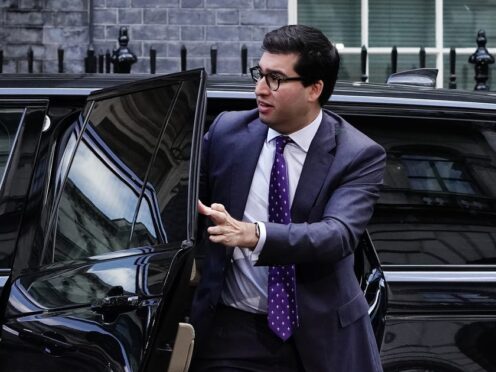Abolishing inheritance tax would be a “win-win”, a Conservative former minister has said.
During the third day of debate on the budget, Ranil Jayawardena, MP for North East Hampshire, said that Sweden’s abolition of inheritance tax led to increased tax revenue.
The standard inheritance tax rate in the UK is 40% on estates valued over £325,000, and the tax is only paid on the portion of the estate above that threshold.
Estates worth less than £325,000 do not pay inheritance tax.
HMRC reported that estates from less than 4% of all deaths in the UK paid inheritance tax in 2020/21, which raised £5.76 billion in tax that year.
There are some exemptions to inheritance tax, including transfers between spouses and civil partners.
Mr Jayawardena told the Commons: “Abolishing inheritance tax will grow the economy, it would encourage more people to stay and work for longer and it will boost receipts to the Exchequer, and the proof of this is Sweden.
“Sweden’s inheritance tax has raised roughly the same proportion as it does in this country, less than 1% of all revenue to the Treasury.
“They abolished inheritance tax in 2004, a move that enjoyed cross-party support, and the result was booming entrepreneurship, economic growth and tax revenues that that tax had previously suppressed.
“It created a surge in assets actually being transferred, not just between family members but to external owners. It was invested in business, capital was being used for innovative reasons and productive uses, and family businesses became more entrepreneurial too, so it was a win-win.
“So, contrary to some briefing that there was from the Treasury ahead of this budget, by abolishing inheritance tax, or at least cutting it significantly, the overall tax revenues can go up and the proof is there. And, of course, any action on inheritance tax is non-inflationary which makes it a safe choice as we continue to battle inflation.”
In the same debate, Labour MP Ian Byrne (Liverpool, West Derby) said that those wanting to cut taxes were in the minority and that more spending was needed as a result of “brutal austerity”.
He told the Commons: “Polling by Ipsos shows that 55% would rather tax more and increase public spending, only 10% of people want to reduce taxes and spend less on public services, so I ask again who is this budget really for?”
He added: “Spending increases for healthcare and education don’t come close to what is needed for our public services after the challenges of Covid-19 and 14 years of brutal austerity.”
